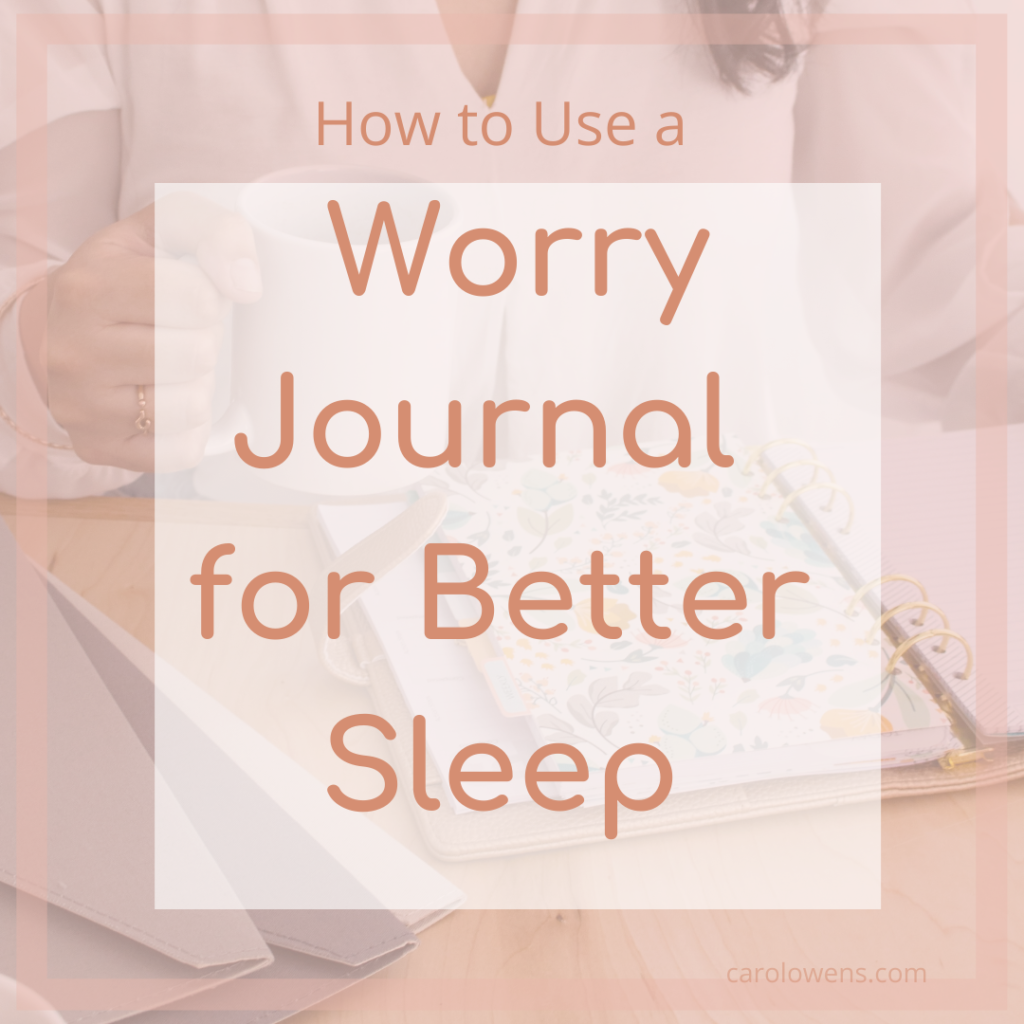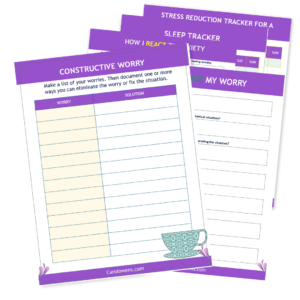5 Ways to Use Journals to Help Soothe Your Worries and Sleep Better
 In the last post we talked about why a worry journal is helpful. You know what a worry journal is and the benefits it can deliver, now it’s time to learn the best ways to use them for better sleep.
In the last post we talked about why a worry journal is helpful. You know what a worry journal is and the benefits it can deliver, now it’s time to learn the best ways to use them for better sleep.
There are a lot of different ways you can use a journal to help soothe your worries and get a better night’s sleep. Here, we’re going to look at 5 effective ways to use your journal to combat those worries.
1. Write down your worries a few hours before bed
Whether you write in a worry journal in the morning or at night, you’re still going to experience some benefits. However, if you’re looking to sleep better, experts suggest using your journal around three hours before you get into bed.
I usually take a few minutes after the evening meal is finished to journal about my day and what is worrying me.
This allows you plenty of time to not only list your worries, but to analyze them. This is a crucial step in eliminating the worry in order to get to sleep.
The trouble with writing down your worries as you get into bed, is it can take a while to process them. You might not feel instantly better. Instead, you’ll need to delve into the worry and figure out ways to tackle them head on. After a few hours, the brain will be much more relaxed.
2. Don’t go too in-depth
While it is important to analyze your worries, it’s also important to ensure you don’t go too in depth with them..
Spend just a few minutes writing about each worry you have. If you go too in-depth, you risk becoming overwhelmed with it all. I typically use a simple bullet list of what the worry is and then a couple of sentences on how it makes me feel. Then I add why i’m actually worried about it
Stick to the main points:
- why you have the worry
- how it makes you feel
- what it is that you’re actually worried about
Once you have these basics written down, it’s easier to start challenging and reducing them.

3. List your fears and concerns
Listing your fears and concerns and try to organize them into chronological order. Focus on the worries that are affecting you right now in the present. A lot of the fears and concerns we have are focused on the future. So, what concerns do you have right now that need to be taken care of?
Once you have list, go over each fear and concern and explore what you think is going to occur next. Then, write down what you fear is going to happen after that.
This gives you an idea of where your fear stems from and whether your fear over what’s coming next is justifiable.
4. Avoid making judgements
One thing you may struggle with when you’re writing about your fears, is judging yourself harshly for them. Once you’ve identified these fears and worries may not be as pressing as you thought, it’s easy to feel weak for allowing yourself to become stressed out over them.
Similarly, look at your worry journal as a safe place to vent your worries and concerns. You may subconsciously try to avoid writing down your full emotions and fears. This causes you to basically censor yourself, and you won’t get the full benefits out of the journal.
5. Identify ways to view your worries differently
Finally, one of the main things that’s going to help you reduce the worry and get a better night’s sleep, is identifying different ways to view them.
For each fear or worry you’ve written down, try and identify at least one way you could view the situation differently.
For example, if you’re worried about failing an exam, try and switch your thinking to what if you pass. Think about the positive things that will happen. It’s so easy for us to focus on the worst-case scenario, but what about focusing on the best scenario which is equally as likely to happen?
These are just 5 ways you can use your journal to reduce worry and get a better night’s sleep. By understanding how to use the journal most effectively, it’s going to significantly reduce the fears you have.
When do you journal about your worries? Do you have a favorite journal you use? Need help getting started? Comment below and let’s talk. 


